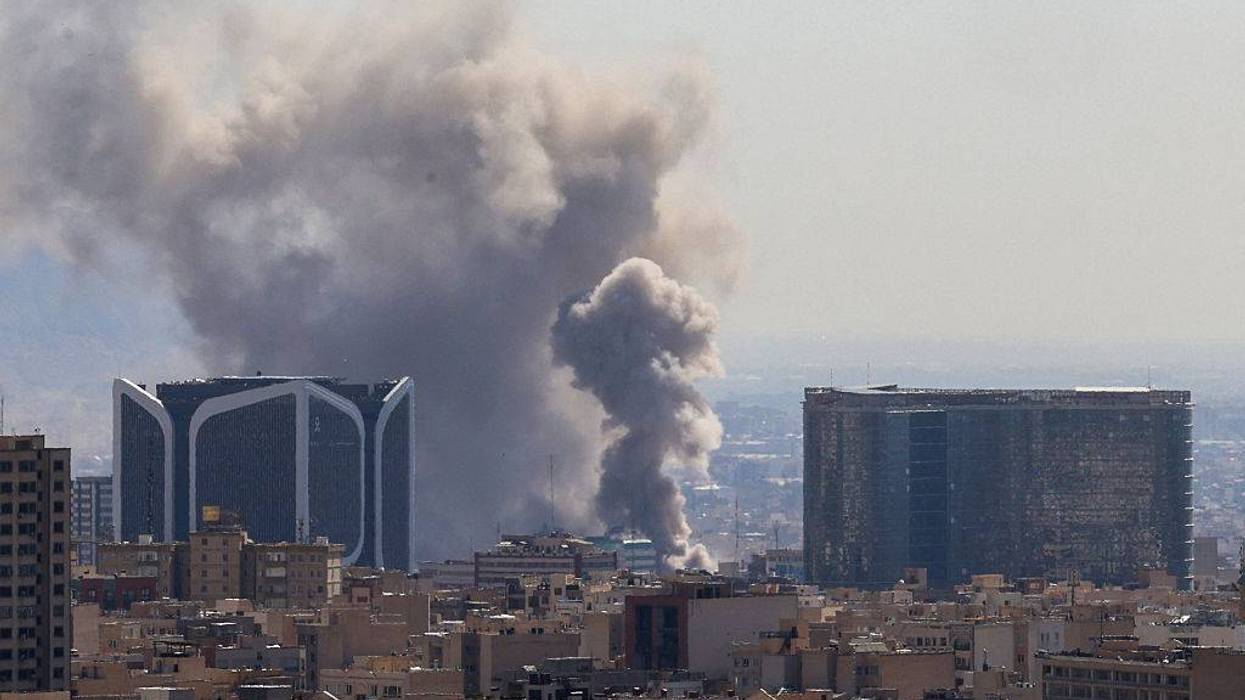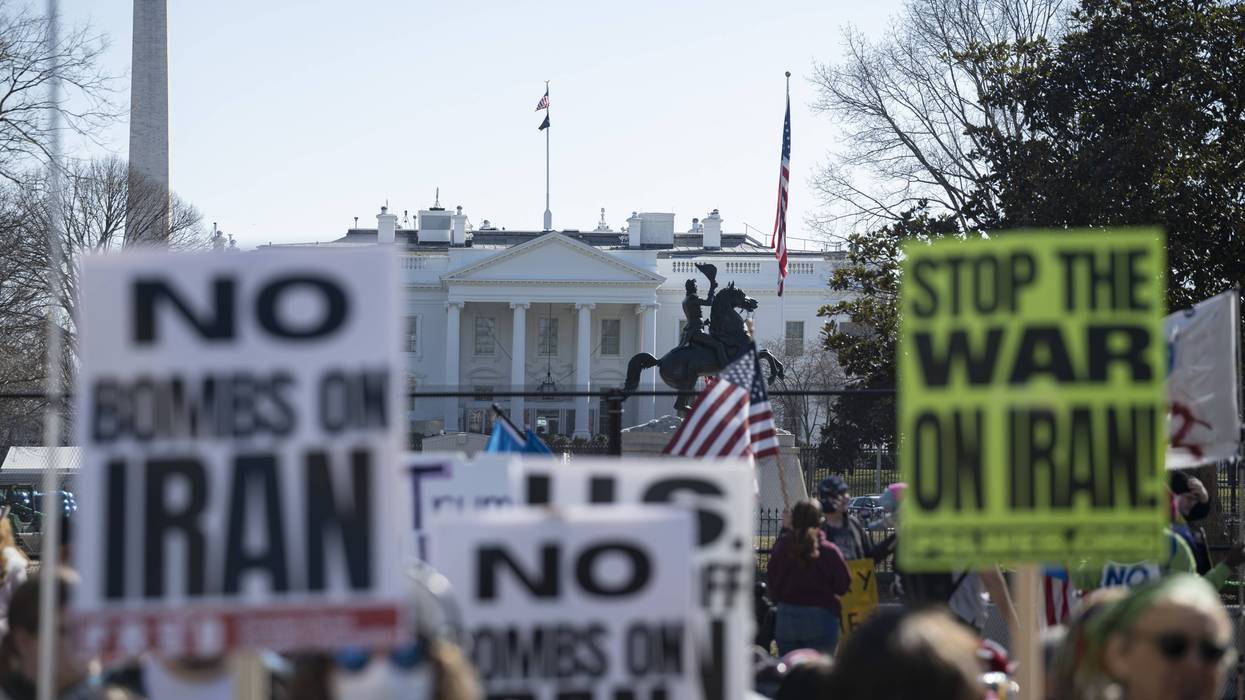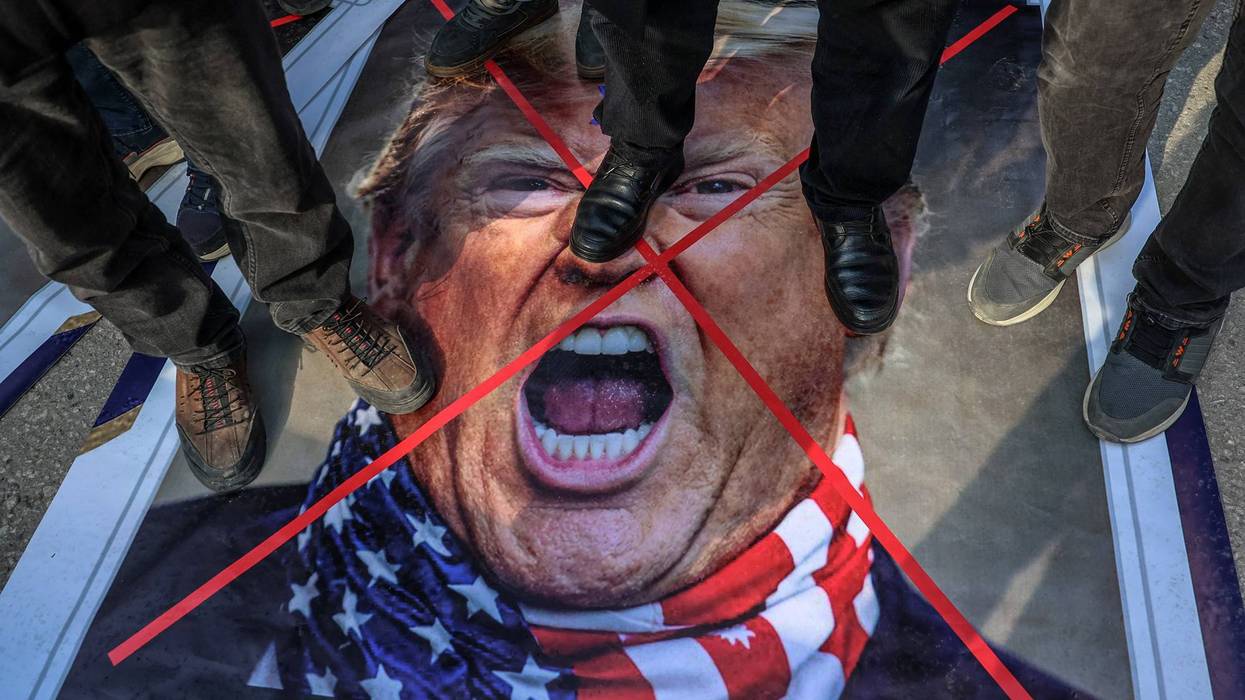July, 09 2009, 03:19pm EDT
For Immediate Release
Contact:
Latin America Experts Call on Clinton to Oppose Early Elections Option in Honduras
Anything Less Than the Urgent Restoration of Zelaya to Office "Would be an usurpation of the will of the Honduran people" They State in Open Letter
WASHINGTON
Over 35 scholars and experts on
Latin America sent an open letter to Secretary of State Hillary Clinton
today urging against the idea of early elections in Honduras as a
possible resolution of the current crisis resulting from the June 28
military coup d'etat. Stating that "Anything less than the urgent
restoration of President Manuel Zelaya to office would be an usurpation
of the will of the Honduran people," the signers urged Clinton to enact
forceful sanctions on the coup regime to ensure Zelaya's prompt
reinstatement. The signers include Harvard emeritus professor John
Womack; scholar, author, commentator, and filmmaker Saul Landau;
Central America expert Hector Perla, and authors and Central America
experts Greg Grandin and Dana Frank, among others.
"It's supremely important that we not make any concessions to those who
have perpetrated military coups. By doing so, we establish a dangerous
precedent," said Dana Frank, Honduras expert and professor of history
at U.C. Santa Cruz.
The letter also notes that the coup regime has suspended civil
liberties, thus eliminating conditions under which free and fair
elections could take place in the near future. The signers also debunk
the pretext for the coup - Zelaya's supposed plans for reelection - by
pointing out that it would be almost impossible for Zelaya to be
reelected before his successor assumes office next year, and that
Zelaya stated before June 28 that he did not seek reelection.
The full text of the letter follows:
________________________________
July 9, 2009
The Honorable Hillary Rodham Clinton
Secretary of State
2201 C Street NW
Washington, DC 20520
Dear Secretary Clinton,
We, the undersigned, are concerned by proposals by some in Washington's
foreign policy circles to push for early elections as a solution to the
crisis instigated by the illegal and anti-democratic coup d'etat in
Honduras. Anything less than the urgent restoration of President Manuel
Zelaya to office would be an usurpation of the will of the Honduran
people. Following resolutions by the United Nations General Assembly
and the Organization of American States calling for Zelaya's immediate
and unconditional return to office, the U.S. must ensure his prompt
restoration by enacting forceful economic sanctions against the regime.
Each day that the illegal coup regime remains in office further
jeopardizes the capacity for Honduras to enjoy free and fair elections
in November, let alone in an earlier time frame. Elections currently
would take place under a coup regime that has suspended civil
liberties, and where the conditions for free elections do not exist.
Such an election would not have international legitimacy. Democracy has
to be restored before a legitimate election can take place. It is also
important to avoid making concessions of any kind to the coup
government, as it would create a terrible precedent, showing other
anti-democratically minded and power hungry individuals that it can be
worthwhile to carry out a military coup in order to advance their
political agendas.
Since illegally seizing office by abducting the president at gunpoint
and putting him on a plane to Costa Rica, the coup regime has suspended
civil liberties and treated the Honduran people as the enemy. They have
revoked freedom of the press by imposing a media blackout, assaulted
and detained journalists, clamped down on protests, detained hundreds
of supporters of President Zelaya, and killed at least two people by
firing on demonstrators.
The regime claims it acted in order to prevent an unconstitutional move
by President Zelaya to extend his term. Yet an examination of the facts
reveals this to be a dubious excuse for an assault on democratic
institutions and the rule of law. President Zelaya's proposed survey
would have been a non-binding poll of public support for an additional
ballot - on whether a constitutional assembly should be created- in the
November elections. The actual question read: "Do you agree that,
during the general elections of November 2009 there should be a fourth
ballot to decide whether to hold a Constituent National Assembly that
will approve a new political constitution?"
Zelaya was not running for reelection in November, nor would he have
been able to. Therefore, Zelaya's successor was always slated to be
elected in November, to be inaugurated in January. Zelaya
had also stated before June 28 that he did not desire reelection.
Possible reelection was not the reason the military carried out the
coup. They opposed Zelaya's policies, and they have at times been
honest about their true motives: "It would be difficult for us, with
our training, to have a relationship with a leftist government,"
Honduran army attorney Col. Herberth Bayardo Inestroza explained
following the coup. "That's impossible."
There is one legal, just, and democratic solution to Honduras' current
crisis: the swift restoration of President Zelaya and the imposition of
economic sanctions-trade as well as aid, on the illegal regime. We call
on the U.S. to take the lead in ensuring this outcome.
Sincerely,
Marc Becker
Associate Professor of Latin American History
Truman State University*
Blase Bonpane
Director
Office of the Americas
Michael Brun, PhD
Dept. Economics
Illinois State University
Ron Chilcote
Professor Economics
University of California Riverside
Aviva Chomsky
Professor of History and Coordinator, Latin American Studies
Salem State College
Noam Chomsky
Professor of Linguistics
Massachusetts Institute of Technology
Jaime Concha
Professor of Latin American Literature
University of California, San Diego
Luis Duno Gottberg
Associate Professor, Hispanic Languages and Literature
Rice
University, Houston, TX
Steve Ellner
Professor Political Science
University of Oriente, Venezuela
Professor Raul Fernandez
Social Sciences
University of California, Irvine
Dana Frank
Professor of History
University of California, Santa Cruz
James Goldfarb Devine
Professor of Economics
Loyola Marymount University
Greg Grandin
Professor of History
Director of Graduate Studies
New York University
Mark Healey
Assistant Professor of History
University of California, Berkeley
Daniel Hellinger
Professor of Political Science
Webster University
Forrest Hylton
Assistant Professor of Political Science/Int'l. Relations
Universidad de los Andes (Colombia)
Misha Kokotovic
Associate Professor
Department of Literature
UC San Diego
Saul Landau
Professor Emeritus
California State University, Pomona
Jorge Mariscal
Director, Chicano/a-Latino/a Studies
University of California, San Diego
Luis Martin-Cabrera
Assistant Professor of Literature
University of California, San Diego
Gilda L. Ochoa
Associate Professor of Sociology and Chicana/o - Latina/o Studies
Pomona College
Tanalis Padilla
Associate Professor of History
Dartmouth College
Diana Paton
Reader in Caribbean History
Newcastle University, UK
Hector Perla
Assistant Professor, Latin American and Latino Studies
University of California, Santa Cruz
Deborah Poole
Professor, Anthropology
Johns Hopkins University
Suyapa G. Portillo Villeda
CFD Fellow, History Department
Pomona College
Gerardo Renique
Associate Professor, Department of History
City College of the City University of New York
William I. Robinson
Professor of Sociology and
Global and International Studies
University of California-Santa Barbara
Dr. Victor M. Rodriguez
Professor, Department of Chicano and Latino Studies
California State University, Long Beach
Dr. T.M. Scruggs
School of Music
University of Iowa
Victor Silverman
Department of History
Pomona College
Steve Striffler
Doris Zemurray Stone Chair in Latin American Studies
Professor of Anthropology
University of New Orleans
Christy Thornton
Director and Publisher
N
orth American Congress on Latin America
Miguel Tinker Salas
Professor of History
Pomona College
Mark Weisbrot
Co-Director
Center for Economic and Policy Research
John Womack, Jr.
Professor of History, Emeritus
Harvard University
Stephen Zunes
University of San Francisco
*Institutional affiliations are listed for identification purposes only.
LATEST NEWS
Trump's Unprovoked War on Iran Triggers 10% Spike in Global Oil Prices
"When global energy security can be upended by a single flashpoint, it shows how unstable and risky our dependence on oil and gas is," said one critic.
Mar 02, 2026
President Donald Trump's unprovoked, unconstitutional, and politically unpopular war against Iran is about to cause pains for Americans at the gas pump.
CNBC reported on Monday that Brent crude oil prices surged by 9.3% to a 52-week high of $79.40 per barrel, while US West Texas Intermediate crude oil prices spike by 9% to $73.10 per barrel.
This spike in oil prices is projected to directly lead to an increase in gas prices in the coming days.
Petroleum industry analyst Patrick De Haan noted in a Monday update on his Substack page that gas prices in the US had already risen by roughly six cents in the last week, and that war with Iran would drive these prices higher.
"Developments surrounding Iran—particularly any threat to regional production or shipping flows—are likely to remain the dominant driver of oil prices," wrote De Haan, "and could keep crude elevated or push it higher if tensions intensify further."
A Sunday research note from Wells Fargo cited by CNBC drew attention to the importance of the Strait of Hormuz, which the Iranian government closed off over the week and which is used to transport roughly 20% of the global supplies of petroleum and liquified natural gas.
According to Wells Fargo, a "prolonged" closure of the strait would result in "an oil shock to $100+ per barrel," which it described as the "worst-case scenario" for global stock markets.
In addition to closing off the Strait of Hormuz, Iran has also been launching attacks on other nations' energy infrastructure.
According to a report from Bloomberg, Saudi Arabia’s largest oil refinery at Ras Tanura had to cease operations on Monday after being struck in a drone attack.
"An attack on major energy infrastructure is a nightmare scenario for global markets," noted Bloomberg, "with maritime traffic through the crucial Strait of Hormuz all but halting."
Olivia Langhoff, managing director at climate justice organization 350.org said that the global economic disruptions being caused by the Iran war shows the folly of continuing to rely on fossil fuels for energy needs.
"When global energy security can be upended by a single flashpoint, it shows how unstable and risky our dependence on oil and gas is," Langhoff said. "Renewable energy provides homegrown power that remains secure and affordable regardless of geopolitical shocks."
Langhoff's comments were echoed by Mads Christensen, executive director of Greenpeace International.
"As long as our world runs on oil and gas, our peace, security and our pockets will always be at the mercy of geopolitics," Christensen explained. "Increasing output may temporarily ease price pressures, but it does not address the structural vulnerability at the heart of this recurring crisis: the world’s continued dependence on fossil fuels."
The increase in gas prices comes at a time when US voters have been expressing widespread dissatisfaction with the economy under Trump, as polls show voters have been particularly anxious about the prices of groceries and utilities, among other essentials.
Keep ReadingShow Less
Only 25% of Americans Support Trump Attack on Iran: Poll
"If this goes on... this is going to become a political disaster," said one foreign policy expert.
Mar 02, 2026
President Donald Trump's war in Iran is extraordinarily unpopular, according to a poll conducted shortly after the US and Israel carried out massive strikes on the country Saturday.
The survey, conducted by Reuters/Ipsos, found that just 27% of voters approved of the strikes, which have killed at least 555 Iranians as of Monday morning and resulted in retaliation from Iran that has killed at least four US service members, with more casualties expected according to a spokesperson for the US Joint Chiefs of Staff.
Meanwhile, 43% of respondents disapproved of the military action, while 29% said they were not sure.
A majority of Republicans said they approved of the strikes, with 55% expressing support. Still, 13% disapproved, and a noteworthy 31% said they were unsure.
Approval is dismal with nearly everyone else. Only 19% of independents expressed support compared to 44% who disapproved. And though Democratic leaders in Congress have done little to stand in the way of the strikes, their voters are overwhelmingly against them: 74% said they disapproved, while just 7% approved.
The poll reflects a wider skepticism of US military intervention, with 56% of respondents saying the president was too quick to deploy military force in recent months, including in Venezuela, Syria, and Nigeria.
Compared with previous US military interventions in the Middle East, such as the invasions of Iraq and Afghanistan, which—at least at their outset—enjoyed broad support from the American public following intense government efforts to drum up support, there has been little effort by the Trump administration to define the purpose of war with Iran.
Trump's justification for launching the war has shifted wildly since he began amassing troops in the region. Trump has most recently said the strikes were intended to stop an "imminent threat" from Iran; meanwhile, the Pentagon has told Congress there was no sign Iran was planning an attack unless the US did so first.
The president previously said his push for war was to prevent Iran from developing a nuclear weapon, an assertion at odds with his claim that his strikes in June "obliterated" the country's nuclear capabilities.
Trita Parsi, executive vice president of the Quincy Institute for Responsible Statecraft, told Al Jazeera that Trump's shifting explanations reek of "desperation."
"It's very clear that Trump has a tremendous difficulty finding a justification for this war of choice that he's embarked on," he said. "The reality is that if this goes on for another week or two, this is going to become a political disaster."
"So now he's suddenly, desperately, using all kinds of justifications: Liberating the Iranian people, Iran is fighting against civilization," Parsi said. "If he actually had a case, he would have stuck to that point and made it clearly. But he doesn't have one."
Keep ReadingShow Less
Call Grows to Impeach Trump, 'The Most Dangerous Man on the Planet'
"Trump’s illegal war on Iran and the rule of law," said one pair of campaigners, "establish an intolerable pattern of egregious abuses of power, directly threatening our constitutional order, our safety, and our way of life."
Mar 02, 2026
After the unprovoked bombing of Iran over the weekend by the United States and Israel—strikes that included the unlawful assassination of Iranian Supreme Leader Ali Hosseini Khamenei—the call for US President Donald Trump to be impeached and removed from office has grown as the straightest path to hold the US leader to account for the attacks which policy and human rights experts have condemned as a serious war crime.
With a regional war in the Middle East that was already boiling from Gaza to Lebanon and from Syria to Yemen now exploding in the wake of the US-Israeli attacks on Iran, Globe and Mail columnist Debra Thompson on Sunday called Trump "the most dangerous man on the planet."
"Rather than ending wars," Thompson notes, "Trump has initiated military action eight times, carrying out attacks in seven countries (Syria, Iraq, Iran, Nigeria, Yemen, Somalia, and Venezuela) in 2025." Such a pattern of violence and warmongering should make clear that failure to restrain Trump has only emboldened him.
"The recurring danger in this latest presidential aggression is that there are no guardrails, no constraints, and no post-hoc justification," writes Thomson, "other than that Mr. Trump is the President of the United States and can do whatever he wants."
But American presidents cannot simply do whatever they want. According to a Reuters/Ipsos poll out Sunday, less than 25% support the president's aggression against Iran. In the first wave of the US military attack, an Iranian school for girls was bombed, killing over 108 civilians, mostly children.
While some congressional lawmakers are pushing for a vote this week on a War Powers Resolution to curtail US military operations against Iran, others are demanding more robust action from Congress to bring Trump's war-making to an end.
"Under Article I, Section 8 of the U.S. Constitution, only Congress has the power to declare war, as well as to raise and support armies, provide and maintain a navy, and fund and regulate the military," declared novelist and political activists Stephen King on Saturday. "Impeach the SOB."
Mike Hersh and Alan Minsky, respectively the communications director and executive director of the Progressive Democrats of America, argued in a Sunday op-ed for Common Dreams that "Trump's illegal, unconstitutional war on Iran is not only a moral and humanitarian disaster, but also a profound constitutional crisis."
According to Hersh and Minsky:
Trump’s illegal war on Iran and the rule of law establish an intolerable pattern of egregious abuses of power, directly threatening our constitutional order, our safety, and our way of life. These intertwined crises cry out for an immediate, decisive response by the Congress and the US public.
Therefore, PDA demands that all members of Congress, Democrats, Republicans, and Independents alike, uphold their oath of office to defend our constitutional republic. The Constitution offers one and only one remedy when President a repeatedly breaks the law and arrogantly refuses to abide by the limits on the power clearly laid out in the Constitution. That remedy is impeachment, followed by removal from office.
Matt Duss, executive vice president for the Center for International Policy, said that US lawmakers, as well as the American people they represent, "must also be ready to hold the president and his administration accountable for this breach of US and international law."
"The failure to hold past presidents liable for war crimes and related violations of our own laws has helped lead to this dangerous moment, with a seemingly unrestrained president endangering millions of lives with impunity," warned Duss. "The forever wars and the imperial presidency must finally come to an end.”
Keep ReadingShow Less
Most Popular


